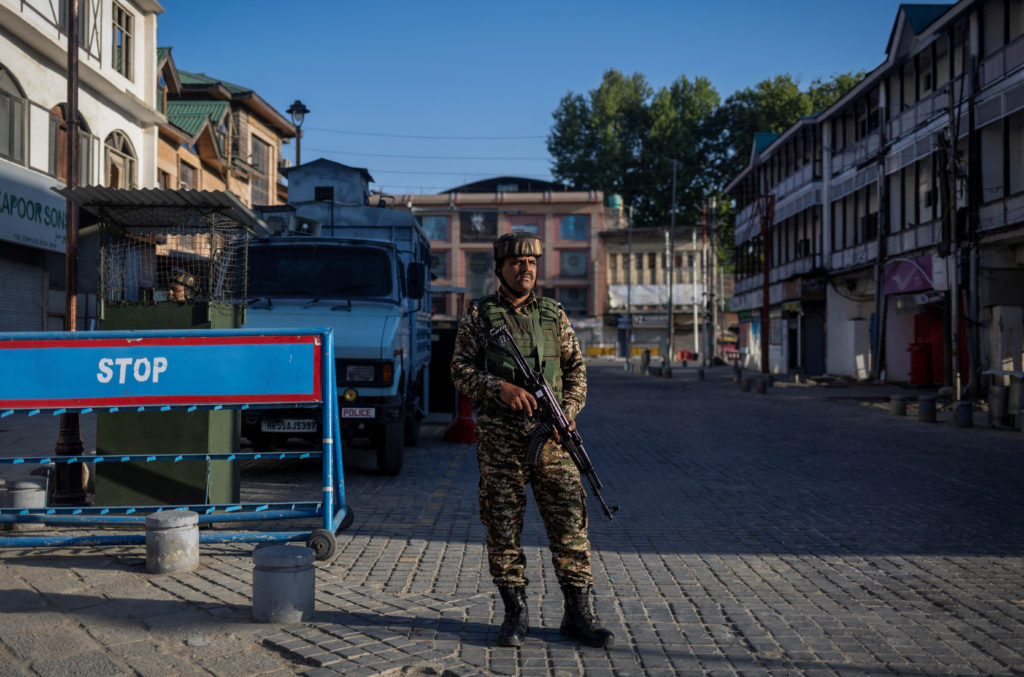
India Closes Most Tourist Attractions in Kashmir After Deathly Attack
India has shut down more than half of the tourist sites in its Kashmir region following a deadly attack that led to increased security measures.
On Tuesday, over half of the tourist destinations in India’s Kashmir region were shut to the public after a tragic attack on Hindu pilgrims in the picturesque Pahalgam area, resulting in at least 26 fatalities. The closures are a result of extensive security measures implemented by the government of Jammu and Kashmir in reaction to the increasing threat of militancy in the area.
A government document reveals that 48 of the 87 designated tourist sites have been closed indefinitely, with enhanced security measures implemented at the sites that are still operational. Officials have yet to announce a timeline for the reopening of the affected areas.
The attack from last week reverberated throughout India and the surrounding areas.
According to eyewitnesses and survivors, the attackers specifically targeted Hindu tourists, inquiring about their names before shooting them at close range. Indian authorities have identified the three attackers, two of whom are reportedly Pakistani nationals, as “terrorists” linked to militant groups active in Muslim-majority Kashmir.
The recent attack has rekindled deep-seated tensions between India and Pakistan, both of which assert full claims over Kashmir while administering it in segments. India has accused Pakistan of supporting terrorism in the region, a claim that Islamabad refutes. Pakistan has called for an independent investigation and emphasized that it solely provides moral and diplomatic support to the Kashmiri people’s demand for self-determination.
On Tuesday, Prime Minister Narendra Modi gathered leading military officials and national security advisers to assess the current situation. A senior government source indicated that Modi has given military chiefs the authority to decide on India’s response to the Pahalgam killings.
At the same time, the diplomatic ties between the nuclear-capable neighbors are increasingly worsening. India has put a halt to the long-standing Indus Waters Treaty, which regulates the distribution of rivers that flow between the two nations, while Pakistan has responded by shutting its airspace to Indian airlines.
Cross-border tensions have intensified, with heightened gunfire reported along the Line of Control (LoC), the effective border separating Indian and Pakistani-controlled Kashmir. Over the course of five consecutive nights, the Indian army has indicated that there has been “unprovoked” small-arms fire originating from Pakistani positions, although no casualties have been reported. The military of Pakistan has not provided any comments as of now.
In addition to the intricate security challenges, Indian officials have recently detected cyber infiltration attempts that are reportedly associated with hackers based in Pakistan. The hackers allegedly focused on a minimum of four military-related websites, one of which is connected to a housing initiative for army personnel.
The declining security situation is not only igniting political turmoil but also jeopardizing the resurgence of tourism in Kashmir. Kashmir, renowned for its stunning landscapes, Mughal-era gardens, and tranquil mountain vistas, has experienced a notable increase in tourist interest in recent years. Nonetheless, the recent outbreak of violence has sparked a surge of anxiety, leading numerous tourists to shorten their vacations just as the summer season was about to commence.
With rising tensions and looming uncertainty, the future of Kashmir’s delicate peace and its flourishing tourism industry hangs in a precarious balance.
All Categories
Recent Posts
Tags
+13162306000
zoneyetu@yahoo.com



